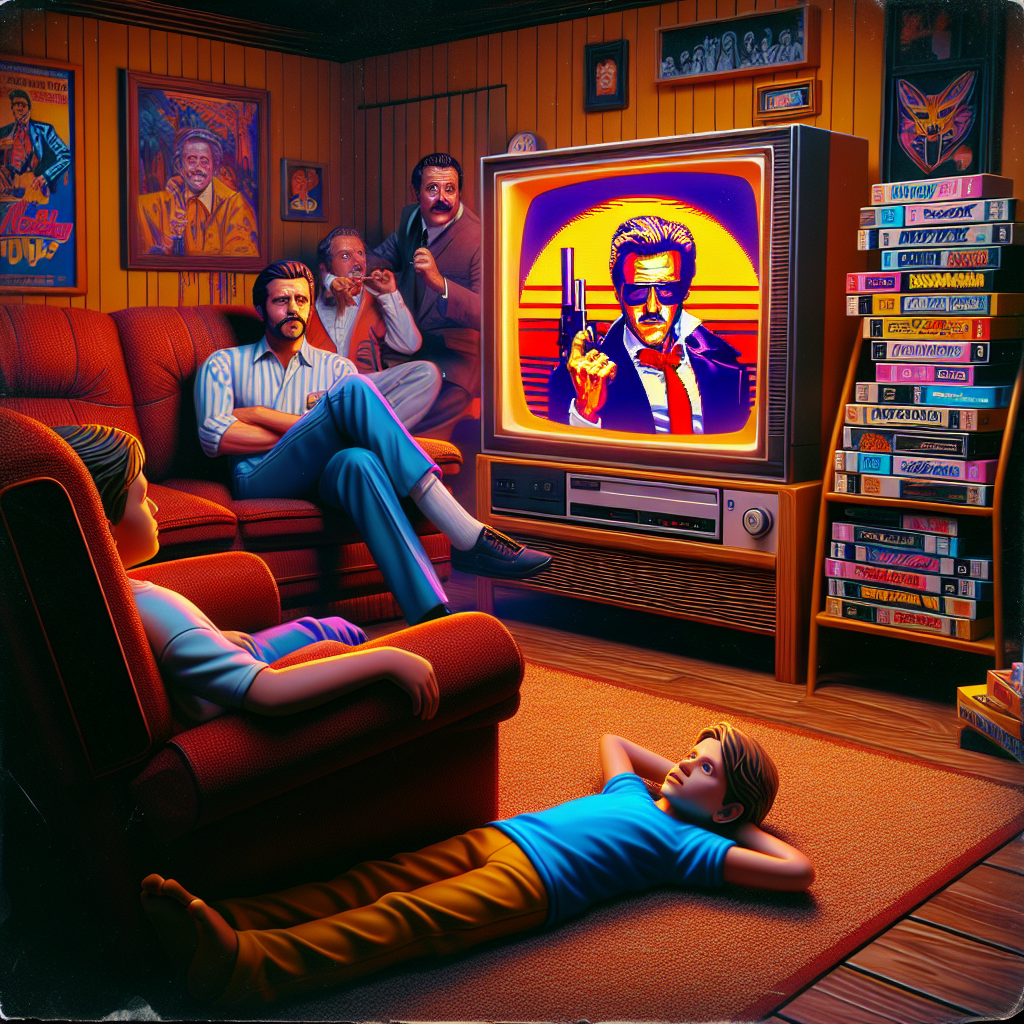The Generational Clash Over Pulp Fiction
Picture this: It’s 1994, Quentin Tarantino has just dropped Pulp Fiction, and it’s tearing up the cinematic rulebook. Cut to: my living room, where my dad — a stern Korean-American, who prefers his films predictable and his action heroes clean-cut — is about to have his movie-going sensibilities challenged.
There I was, a wide-eyed, movie-obsessed teenager, ready to have my mind blown by Tarantino’s symphony of cool dialogue, non-linear storytelling, and shockingly casual violence. My dad? Not so much. He sat through the whole thing with a furrowed brow, dismissing it as “nonsensical” and “glorifying crime.” Ouch, right?
Why Did Pulp Fiction Split Opinions?
Let’s dissect why Pulp Fiction became a generational battlefield. For starters, Tarantino’s masterpiece ditched traditional narrative for a chaotic, yet mesmerizing, puzzle box that viewers needed to piece together themselves. It was bold, it was brash, and it didn’t care if you weren’t on board.
For many of us youngsters, this was exhilarating — it was like being inducted into a cult of cinematic coolness. My dad, representative of a more traditional viewer, saw it as a disruptive mess, lacking in moral clarity and structure. This generational clash over Pulp Fiction wasn’t just about taste, it was about cultural and cinematic evolution.
What Made Me Love Pulp Fiction Even More?
The more my dad ranted about Tarantino’s creation, the deeper I dived into it. There was something deliciously rebellious about adoring a film that my dad despised. It wasn’t just about rebellion, though. This film was a doorway to a new kind of storytelling, where the lines between hero and villain blurred, and where dialogue could be as powerful as a gunshot.
Tarantino’s narrative style, blending highbrow references with lowbrow humor, turned dialogue into a rhythmic dance. This wasn’t just a movie; it was a cultural moment, a lexicon of cool that defined a generation. And there I was, using it as both a shield and a declaration of my own emerging identity.
The Impact of Pulp Fiction on Cinema and Me
Pulp Fiction didn’t just change how stories could be told; it changed how I viewed movies. It taught me that films could be puzzles, that characters could be morally ambiguous, and that a soundtrack could be a narrative device. It was a film that demanded discussion, interpretation, and a bit of reverence.
This movie, which my dad saw as a breakdown in cinematic norms, I saw as a breakthrough. It’s this clash of views that not only solidified my love for Tarantino’s work but also pushed me deeper into the world of esoteric, unconventional films.
Final Thoughts
So, why did I love Pulp Fiction twice as much because my dad hated it? It was more than just teenage rebellion. It was a declaration of a cultural shift, a shift that I was all too ready to embrace. In every heated discussion about the film’s merits, I found my passion for cinema burning brighter.
If you’re intrigued by how other controversial films have shaped viewer ideologies and cinematic trends, check out Hidden Gems: The Most Underrated Movies from Each Decade.
So, whether you side with my dad or with me, one thing is clear: Pulp Fiction remains a pivotal point in film history, challenging viewers and delighting rebels at heart.


